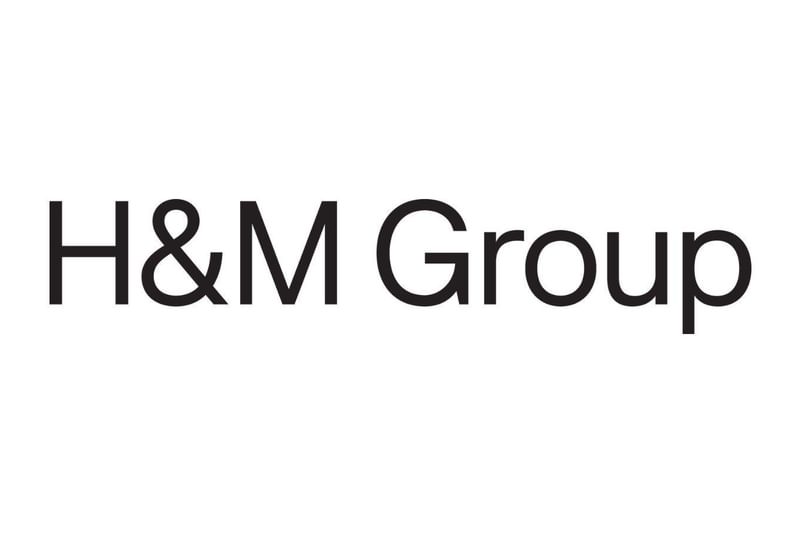
Chemicals
If your company operates in the chemicals sector, now is the time to take decisive climate action. Explore our latest resources and start setting science-based targets that position your business for long-term success.
Science-based targets for chemicals companies
We have published new pathways and supporting criteria tailored to the chemicals sector, giving companies practical tools to lead the net-zero transformation. The SBTi Chemical Sector Pathways and Implementation Criteria defines how much and how quickly companies must reduce emissions to align with global climate goals—providing a clearer, more actionable path for credible climate action.
Chemicals manufacturers can begin their climate journey today with a comprehensive suite of resources designed to help business turn ambition into action:
- SBTi Chemical Sector Pathways and Implementation Criteria ('pathways criteria document'): Outlines pathways and calculation criteria to address the most emission-intensive sources in the sector.
- SBTi Chemicals in Brief: Summarizes the key elements of the pathways criteria document.
- Translations are available in Chinese, Japanese, Portuguese and Spanish.
- Explanatory Document: Provides informative guidance on relevant topics for target setting.
- SBTi Chemicals Target-Setting Tool: Helps companies in developing targets.
- SBTi Services Chemicals Criteria Assessment Indicators: Details the major checks conducted by SBTi Services during the validation process.
- SBTi Services Chemicals Annex: Companies choosing to set targets following the pathways criteria document must complete this Annex.
Designed for use alongside the Corporate Net-Zero Standard and the Corporate Near-Term Criteria, these resources help chemical companies set targets to transition towards net-zero aligned business models.
By setting science-based targets in line with the new pathways, companies can demonstrate climate leadership, drive innovation, and strengthen investor and consumer confidence—all while enhancing long-term business resilience and competitiveness in a carbon-constrained world.
Who are these resources intended for?
The Chemical Sector Pathways and Implementation Criteria applies to companies involved in the production of primary, base, intermediate, specialty, and consumer chemicals, as well as pharmaceuticals, and chemical recycling activities. It might also be useful for other companies, such as those that purchase significant volumes of primary chemicals.
It recognizes the diversity of processes and emissions profiles across the industry, providing activity-specific pathways tailored to priority emissions sources, including:
Pathways for the most emissions-intensive primary chemicals, including ammonia, methanol and high-value chemicals.
A pathway for nitrous oxide emissions generated in the production of nitric acid.
A pathway for non-primary chemicals production.
A pathway for reducing use-phase nitrous oxide emissions from the application of nitrogen fertilizers.
A pathway to increase the use of alternative feedstocks used in the production of chemicals.
Together, these pathways reflect the different operational realities of the sector and resulting emissions portfolio, providing chemical manufacturers with a clear, actionable roadmap to align with net-zero.
Why take action?
The chemicals sector sits at the center of the global economy and plays a critical role in the transition to net-zero. As the largest industrial energy consumer and the third highest contributor of global emissions, the sector faces growing climate-related risks—nearly half of chemical sector assets held by financial institutions are exposed to water stress. Companies have a unique opportunity to seize the many benefits of science-based target setting while playing their part in working towards global climate goals.
The SBTi's wholly-owned subsidiary, SBTi Services, checks and validates the science-based targets of corporates, financial institutions, and small and medium-sized enterprises (SMEs).
By validating your targets with SBTi Services, you will:
- Demonstrate that your climate goals are robust and credible to investors and customers.
- Ensure your targets for reducing emissions are aligned with the latest climate science.
- Gain reassurance that your goals will remain relevant in the near- and long-term through re-validation by SBTi Services following mandatory target recalculation.
So what are you waiting for? Visit the SBTi Services website to get started today!
The SBTi developed this project with support of Guidehouse. Participation was possible via the following groups:
Expert Advisory Group (EAG): Composed of technical experts from academia, research, non-profit, multilateral organizations and companies who served in a voluntary advisory capacity throughout the development of the project. The project’s EAG consisted of individuals from the following organizations:
- Guillaume De Smedt - Air Liquide
- Anil Patel - Air Products
- Melissa Wang - University of Exeter
- Christoph Jaekel - BASF
- Kurt Vinck - Borealis Polymers NV
- Eric de Deckere - Cefic
- Dan Smith - Center for Green Market Activation
- Ibrahim Eryazici - Dow Inc.
- Rebecca Horton - Eastman Chemical Company
- Thea Lyngseth - Environmental Coalition on Standards (ECOS)
- Avinash Chandra - Indorama Ventures PCL.
- Fredric Bauer - Lund University
- Korede Akinpelumi - LyondellBasell
- Rose Turner - Nutrien
- Soumaya Benzennou - OCP Group
- Aidan Shilson Thomas - ShareAction
- Megha Nath - Sustainable Communities India
- Seyed Alireza Modirzadeh - Transition Pathway Initiative (TPI) Centre
- Fanran Meng - University of Sheffield
- Zach Byrum - World Resources Institute (WRI)
- Johan Widheden - World Wide Fund for Nature (WWF)
- Fahad Saleem - Yara International ASA
Other contributing members
- Sarah Torkamani - Supported during consultation phases
- Laura Väyrynen - Supported during consultation phases
- Arnaud Hollinger - Supported during research, drafting, and consultation phases
- Michelle Nutting - Supported during research, drafting, and consultation phases
- Trine Kopperud - Supported during research, drafting, and consultation phases
- Jana Hock - Supported during research, drafting, and consultation phases
Experts from Braskem and LANXESS also supported the project during the research and drafting phases
EAG members volunteered in a personal capacity to provide technical advice over the duration of the project. While their expertise helped guide the development process, final content decisions rested solely with the SBTi. As a result, the final output does not necessarily represent or imply endorsement by individual EAG members or their employers.
General stakeholder consultation. Both industry and non-industry representatives provided feedback on each project component through the two public consultations and pilot phases. Relevant resources can be found in the Resources section below.
The following organizations provided initial financial support:
- Air Liquide
- Air Products
- BASF
- Indorama Ventures PCL
- LyondellBasell
- Nutrien
- Yara International ASA
- Project launch: The SBTi Chemicals Project started in 2020, researching the barriers, challenges, and opportunities for chemical companies to set science-based targets. In 2023 we released the Chemicals Sector Status Report offering insights into the sector’s climate impact and outlining SBTi’s approach to this industry. Read the project Terms of Reference (TOR) for further details.
- Public consultation: We held two public consultations for expert feedback on the draft resources: from May to July 2024 and November 2024 to January 2025. Between these periods, we revised the resources based on input received. Read the first and second public consultation feedback reports.
- Pilot testing: During Q1 2025 companies in the chemicals sector piloted the criteria and tool using their datasets to help identify potential improvements and assess applicability. Read the pilot testing feedback report.
- Final publication: Feedback from the second public consultation and pilot participants was extensively reviewed, and the updated deliverables sent to the SBTi Technical Council. Following its agreement and Board adoption, the final resources were issued in December 2025.
Setting science-based targets:
- SBTi Chemical Sector Pathways and Implementation Criteria
- Chemicals Target-Setting Tool
- SBTi Services Chemicals Criteria Assessment Indicators
- SBTi Services Chemicals Annex
Background:
Pilot test resources
Second Public Consultation Resources
- Second Public Consultation Feedback Report
- Chemicals Sector Target-Setting Criteria Second Consultation Draft
- Chemicals Sector Target-Setting Tool Second Consultation Draft
- Chemicals Sector Target-Setting Criteria Supplemental Data Memorandum Second Consultation Draft
- Main Changes Document: Chemicals Sector Target-Setting Criteria Second Consultation Draft
First Public Consultation Resources
- Chemicals Sector Project First Public Consultation Feedback Report
- Chemicals Sector Project First Public Consultation Feedback Log
- Chemicals Sector Guidance First Consultation Draft
- Chemicals Sector Target-Setting Tool First Consultation Draft
- Data Supplement for Reviewers of the Chemicals Sector Guidance First Consultation Draft
- Watch the introductory video to the first public consultation and
download the slide deck
EAG Resources
Background Resources
- Chemicals Sector Project Development Terms of Reference (December 2024)
- Science Based Target Setting in the Chemicals Sector: Status Report (January 2023)
- Sector Assessment: Barriers, Challenges, and Opportunities for Chemical Companies to Set Science-Based Targets (December 2020)
- Chemicals Sector Project Description (October 2018)
Join the Chemicals Project mailing list to receive our newsletters and stay up-to-date on this project.
For further information on the project, email chemicals@sciencebasedtargets.org.
To provide feedback on the SBTi Chemical Sector Pathways and Implementation Criteria and supplementary resources, use this form.



